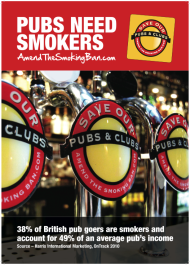Defining liberalism
 Friday, January 8, 2010
Friday, January 8, 2010 Interesting article in the Financial Times by Samuel Brittan. (In 1981, when 364 leading economists wrote a letter to The Times criticising Margaret Thatcher's economic policy, Brittan was one of the few economic commentators to openly defend her.)
On the subject of liberalism, Brittan writes:
Modern discussion of the subject begins with John Stuart Mill’s still controversial 1859 essay On Liberty. This states that “the sole end for which mankind are warranted, individually or collectively, in interfering with the liberty of action of any of their number, is self-protection”, that is to “prevent harm to others. His own good, either physical or moral, is not a sufficient warrant".
"We need to move on from Mill, writes Brittan, "partly because there will always be argument about how to draw the line between self and self-regarding actions. Almost all conduct has some effect on other people." He continues:
I would myself favour an informal concept put forward by John Maynard Keynes in an essay in the 1920s, which distinguished between the agenda and non-agenda of government. This would not be fixed for all eternity but would vary over time. Kaeynes devised the idea to separate himself from those 19th century Liberals who saw little useful role for the state. But it could equally be applied in reverse to cordon off areas where the government has no business interferfing with citizens. It is the refusal to recognise any such limits tat is the real crime of New Labour and why some of us will find it hard to support it again.
Brittan concludes with three examples "that starkly expose anti-liberal ways of thinking". One is compulsory national service; another is rigid foreign exchange restrictions.
A final example is the smoking ban in public places - and I speak as a lifelong non-smoker. So long as there are designated areas to ensure non-smokers are protected from smoke pollution, what is the harm in providing a room where people can smoke at their own risk? Why is this worse than making smokers stand outside in the cold?
"However difficult it is to define a liberal," he concludes, "it is not hard to spot anti-liberals."
PS. I can't link to the article because the FT is now subscription only.
 Articles,
Articles,  Smoking Ban
Smoking Ban 









Reader Comments (4)
Waffle, waffle from Samuel Brittan.
Being a liberal means giving credence to both sides with no limits imposed, in my book.
And the Liberal Party did not take a stand against this draconian smoking ban with its outrageous limits.
When these guys start practicing what they preach people might start taking them seriously.
You are welcome to use my login:
daveatherton20@hotmail.com
Password clive123
Excellent, thanks Dave.
I agree I will never vote Labour again.
Or Liberal democrat.
Or Conservative.
UKIP for me I think.